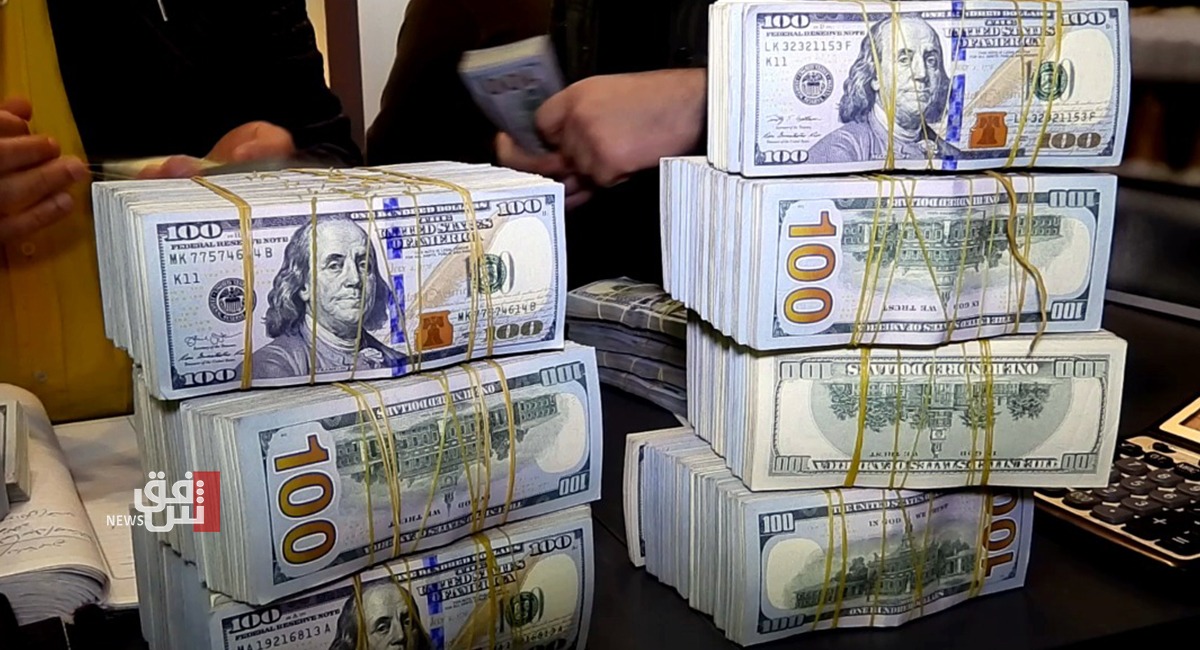The dollar’s flight does not threaten the dinar.. Al-Sudani’s advisor dispels fears: The dollar system is a thing of the past
 The financial and economic advisor to the Iraqi Prime Minister, Mazhar Mohammed Salih, commented on Monday on the return of the rise in the exchange rate of the US dollar against the Iraqi dinar in local markets.
The financial and economic advisor to the Iraqi Prime Minister, Mazhar Mohammed Salih, commented on Monday on the return of the rise in the exchange rate of the US dollar against the Iraqi dinar in local markets.
Saleh explained to Shafaq News Agency, “The fixed exchange rate system in Iraq is based on an international reserves base that is the highest in the history of Iraq and its monetary policy, as foreign currency covers more than 100% of the total currency currently issued.”
He added that “given the strength of the official central exchange market, the exchange rate of the dollar to the dinar in the parallel market today in the country does not constitute any relative importance in influencing the stability of the general price level, which has become stable in its components and trends due to the influence of the official exchange rate factor currently dominating the financing of foreign trade (imports) amounting to 1320 dinars per dollar, which is a stable trend for the exchange rate and around which the stable external value of the dinar revolves, which is embodied by the state of stability of the relative prices of goods and services to a large extent, as the annual inflation in the country does not exceed 3%.”
According to Saleh, based on the above, and in light of the strength of the foreign reserves supporting the Iraqi dinar, the value of which as liquid foreign assets exceeds $100 billion, the official exchange market, as a general trend, will remain dominant in containing any colored noise or ambiguous information that affects the parallel exchange market in short periods due to urgent international or regional political events here and there or in adapting some instructions regulating the monetary market.
Al-Sudani’s financial advisor said that after the decline of the dollarization phenomenon in domestic transactions, especially in contracts, obligations and payments inside the country since last year and its legal prohibition, the parallel exchange market has become such that its general effects today only form a narrow economic scope of prohibited transactions practiced by informal markets and at a rate of 10% of the total supply and demand transactions for the currency.
Saleh stressed that “the stability of the exchange rate of the dinar to the dollar that the country is witnessing, even in the secondary markets above, is a real and solid stability. Rather, it is derived from the strength of the impact of the price and quantity factors of the monetary and financial policies and their integration in imposing overall price stability in the country and containing the inflationary expectations that were caused by the forces of the parallel exchange market during the past years.”
The financial advisor concluded his speech by pointing out that “the secondary (irregular) market, due to the freedom of external transfer, is under the influence of the official exchange market rate, whose operations are constantly expanding in favor of dealing at the fixed official exchange rate.”
Shafaq.com
